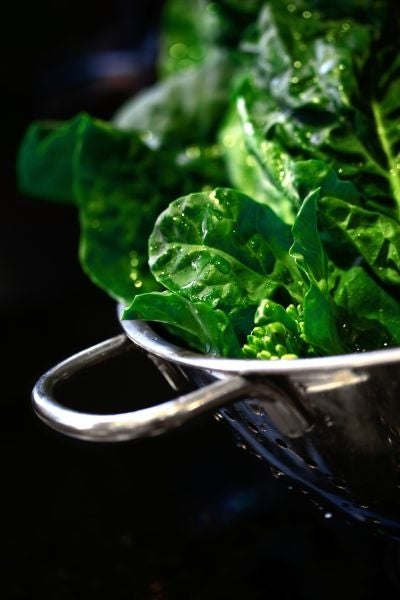Your support helps us to tell the story
From reproductive rights to climate change to Big Tech, The Independent is on the ground when the story is developing. Whether it's investigating the financials of Elon Musk's pro-Trump PAC or producing our latest documentary, 'The A Word', which shines a light on the American women fighting for reproductive rights, we know how important it is to parse out the facts from the messaging.
At such a critical moment in US history, we need reporters on the ground. Your donation allows us to keep sending journalists to speak to both sides of the story.
The Independent is trusted by Americans across the entire political spectrum. And unlike many other quality news outlets, we choose not to lock Americans out of our reporting and analysis with paywalls. We believe quality journalism should be available to everyone, paid for by those who can afford it.
Your support makes all the difference.Not that you need more reasons to eat your veggies, but here's one more: new research published on February 2 suggests that nitrates in spinach and other leafy greens increases the efficiency of your muscles.
The researchers gave healthy people small doses of inorganic nitrate for three days while measuring their oxygen uptake as they rode exercise bikes. While the researchers aren't recommending anyone start popping nitrate supplements, they did find an interesting link between nitrates and increased efficiency of the mitochondria that power our cells.
"We're talking about an amount of nitrate equivalent to what is found in two or three red beets or a plate of spinach," said Eddie Weitzberg of the Karolinska Institutet in Sweden. "We know that diets rich in fruits and vegetables can help prevent cardiovascular disease and diabetes, but the active nutrients haven't been clear," he said of the study's additional findings. "This shows inorganic nitrate as a candidate to explain those benefits."
Not until recently have nitrates been considered for their nutritional value. In fact, it had been suggested that they might even be toxic. Another new study recently credited the nitrates in beet juice for boosting blood flow to the brain, sharpening your mind, and potentially creating a safeguard against dementia as you age. How much juice do you need? About 16 ounces (473 ml) of beet juice a day, researchers stated.
High concentrations of nitrates are found in celery, cabbage, and other leafy green vegetables such as spinach and some lettuce, and of course beets.
Access the study, published in the February issue of the journal Cell Metabolism: http://www.cell.com/cell-metabolism/retrieve/pii/S1550413111000052

Join our commenting forum
Join thought-provoking conversations, follow other Independent readers and see their replies
Comments